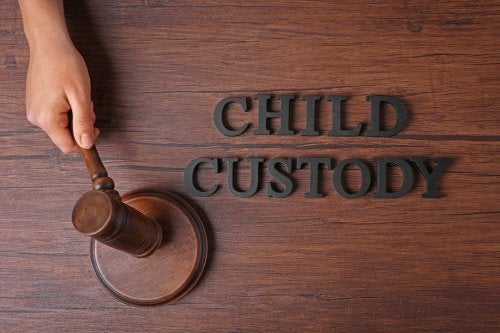-
How Motions Are Made and Opposed in Court
After a personal injury lawyer in Owings Mills files a lawsuit against a defendant , either party may make a motion. A motion is simply a document that asks the court to decide something, also known as issuing a ruling. For example, the personal injury lawyer for the defendant may file a motion to dismiss the lawsuit, which means to drop the case.

When you watch this video, you’ll hear the fictitious story of Patty and David. Patty sues David, whose lawyer then files a motion to dismiss. That motion is then substantiated by a brief that presents the reasons why the lawsuit should be dismissed. After this happens, Patty’s lawyer can file a brief that argues against dismissing the lawsuit.
-
How Long Does It Take to Get Divorced?
In Owings Mills, Maryland, divorce law is a bit stricter than most of the country, although that has slowly been changing. In most cases, if the couple isn’t eligible for fault-based divorce or a mutual consent, no-fault divorce, then there is a minimum 12-month waiting period. This 12-month period is a legal separation, during which the spouses must not cohabit or have sexual relations. At the end of the separation, the divorce can proceed. The time it takes to finalize the divorce depends on the extent to which the spouses can agree to settle the major issues, such as custody and property division.
Spouses who do not share minor children and have resolved all issues out of court can seek a mutual consent divorce. Both spouses must sign the proposed settlement agreement. A court hearing may be scheduled in as quickly as 45 days from the filing of the paperwork. Another option is fault-based divorce, in which one of the spouses seeks to end the marriage because of issues like adultery, incarceration, or insanity. Some of these grounds may have their own waiting period. For example, divorce based on conviction of a crime can proceed only if the convicted person has been sentenced to more than three years, and has already served at least 12 months.

-
Common Violations of Custody Agreements
Ideally, both parents would wholeheartedly follow child custody agreements and work together cooperatively for the best interests of the children. Violations of custody orders only harm the child, and unfortunately, they are quite common. When child custody issues affect families in Owings Mills, a divorce attorney can help the non-violating parent find a good solution. It’s advisable to take action sooner, rather than later. Unless the violation was an honest mistake, it’s quite likely that the violating parent will repeatedly test the limits of the other parent’s patience.

Parental Alienation
Parental alienation is arguably the type of violation that is most damaging to the child. It often stems from violations of the non-disparagement clause, which requires both parents to refrain from badmouthing the other parent in front of the child. Disparagement can take many forms. It can include hypothetical statements like, “Your father is always running late. I wonder if he even really wants to see you,” and “Looks like the child support is late again,” and “If you’d rather stay with your friends this weekend instead of seeing your father, that’s fine with me.” Disparagement of the other parent is so damaging because it causes highly impressionable children to turn away from the disparaged parent. In severe cases, the children may voluntarily cut off all contact with the disparaged parent because they’ve been made to think, wrongfully, that this parent is evil or abusive.
Visitation Refusal
When the violating parent has engaged in disparagement and encouraged parental alienation, children often refuse to see the other parent. In other cases, the violating parent may decide to refuse to let the kids go with the other parent. Aside from protecting the kids from an imminent risk of harm—such as if the visiting parent arrives in an intoxicated state—there is no lawful reason to deny visitation. Late child support payments have nothing to do with a parent’s right to spend time with his or her children.
Visitation Interference
Even if visitation isn’t denied outright, the violating parent may attempt to interfere with it in some way. Violating parents might make a habit of scheduling doctor or dentist appointments during visitations, for example.
Education Decisions
Custody violations can include violations of joint legal custody. Legal custody refers to the authority to make major decisions for the child’s upbringing, such as decisions about schooling. If the parents share joint legal custody, then they must both agree to major decisions. An example of a violation occurs when one parent pulls a child out of school and enrolls that child in a different school without consulting the other parent.
-
Can a Child Request to Change a Custody Agreement?
The child custody laws applicable to Owings Mills, Maryland give the judge broad discretion in determining whether a child can voice his or her own preferences about the type of child custody arrangement. When establishing the original custody agreement , the judge will determine on a case-by-case basis if the child is mature enough to express his or her preferences. Judges will not consider poorly reasoned opinions, such as a child wanting to live with the mother because she has looser house rules. Greater weight is given to evidence of emotional attachment.
After the type of child custody has already been determined, either parent may later file for a modification due to substantial changes in circumstances. At this time, the child may again be able to voice an opinion. A child can only file the petition for him- or herself when he or she is at least 16. The teen must prove that a change in custody serves his or her best interests regarding emotional and physical well-being.

